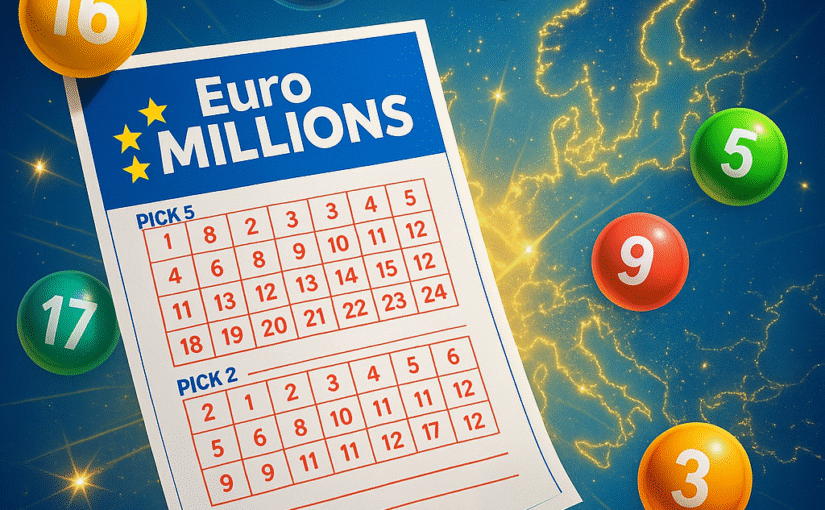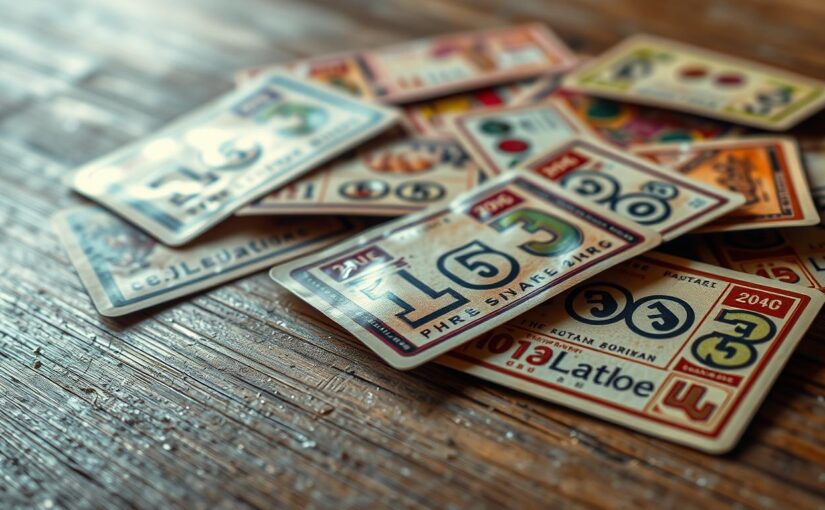For players who dream of multi-country, multi-million jackpots, the EuroMillions lottery game is one of the biggest names in the world. With huge top prizes, multiple secondary tiers, and a simple number format, it attracts millions of tickets every draw.
This guide explains how EuroMillions works, how to play step by step, what the real odds look like, and smart strategies so you can enjoy the game responsibly while still chasing those giant jackpots.
What Is the EuroMillions Lottery Game?
EuroMillions is a transnational lottery played across several European countries. All participating countries contribute to the same prize pool, which is why the jackpots can grow to very high amounts.
Key features of the EuroMillions lottery game:
- Shared jackpot across multiple European countries
- Simple double–pool format: main numbers + Lucky Stars
- Multiple prize tiers, from small fixed prizes to huge jackpots
- Special “Superdraws” and event draws that boost the jackpot to a guaranteed high amount
Because of its huge jackpots and international appeal, EuroMillions is popular among both casual players and regular lottery fans.
How to Play EuroMillions
Even if you have never played before, entering the EuroMillions lottery game is straightforward.
1. Get a Ticket from an Authorized Source
You can usually play by:
- Buying a physical ticket from an authorized retailer in a participating country, or
- Using a licensed online lottery platform that sells official EuroMillions entries (where permitted by law).
Always make sure the vendor is official and legal to avoid scams or invalid tickets.
2. Choose Your Numbers
Each EuroMillions line consists of:
- Five main numbers from a main pool
- Two Lucky Star numbers from a separate, smaller pool
You can select numbers in two ways:
- Manual selection – choose your own numbers
- Lucky Dip / Quick Pick – let the system randomly generate numbers
There is no mathematical advantage to picking your own numbers versus Quick Picks. Every valid combination has the same chance of being drawn.
3. Decide How Many Lines and Draws to Enter
On a single play slip or online form, you can:
- Play multiple lines (sets of numbers)
- Enter your numbers into one upcoming draw or multiple draws in advance
More lines mean:
- Higher overall cost
- More combinations covered in each draw
Only buy as many lines as fit within your lottery budget.
4. Check for Optional Add-On Games
Some participating countries offer add-on games alongside EuroMillions:
- These are extra games that use your EuroMillions numbers or separate numbers.
- They offer additional prize opportunities for a small extra cost.
The rules and availability of add-ons vary by country, so check your national lottery’s details.
5. Keep Your Ticket Safe and Check Results
After the draw:
- Compare your numbers to the official EuroMillions results.
- Check which prize tier you fall into (jackpot, secondary tiers, or no prize).
If you win:
- Follow the official prize claim process in your country.
- Pay attention to claim deadlines so you do not lose a valid prize.
EuroMillions Odds and Prize Structure
Understanding the odds in the EuroMillions lottery game helps you play with realistic expectations.
Jackpot Odds
The jackpot is awarded when a ticket matches:
- All five main numbers, and
- Both Lucky Star numbers
Because of the large number of possible combinations, the chance of hitting the jackpot is very low. That is why the top prize can reach such enormous amounts, especially when it rolls over after several draws without a winner.
Secondary Prize Tiers
EuroMillions also includes multiple lower prize tiers, for combinations such as:
- 5 main numbers + 1 Lucky Star
- 5 main numbers only
- 4 main numbers + 2 Lucky Stars
- 3 main numbers + 2 Lucky Stars
- Down to combinations like 2 main numbers + 1 Lucky Star, and sometimes even 2 main numbers only
These prizes:
- Offer much better odds than the jackpot
- Still provide attractive returns, especially in higher secondary tiers
Your national lottery’s prize table will show:
- How many winners are in each tier
- Fixed or shared prize amounts
- Any country-specific enhancements or raffle-style bonuses
Smart Strategies for the EuroMillions Lottery Game
No system can guarantee a win; EuroMillions is purely a game of chance. However, you can still use good habits and smart strategies to make your play more responsible and enjoyable.
1. Set a Fixed Lottery Budget
Before you start:
- Decide how much you can afford to spend on EuroMillions each week or month.
- Treat this as entertainment money, not a financial investment.
- Stick to your budget even when jackpots become very large.
This prevents lottery spending from interfering with your essential expenses.
2. Spread Your Play Across Draws
Instead of spending a large amount on one single draw:
- Consider buying fewer lines per draw, but taking part in more draws over time.
Your odds per line stay exactly the same, but you avoid risking too much money on a single result.
3. Choose Numbers with Payout Sharing in Mind
While you cannot change the odds of your numbers being drawn, you can affect the chance of sharing a prize with other winners.
Common player habits:
- Using birthdays and anniversaries (numbers 1–31)
- Picking patterns or straight sequences on the play slip
This leads to many players holding similar combinations. To reduce the chance of splitting a large prize:
- Use a mix of low and high numbers, not just 1–31
- Avoid obvious patterns and sequences
Again, this does not increase the chance of winning, but it may help you keep more of the prize if you do win.
4. Consider Lottery Syndicates
A lottery syndicate is a group of people who pool their money to buy more lines.
Advantages:
- More entries per draw, covering more combinations
- Increased chance of winning some prize, since the group holds more tickets
Drawbacks:
- Any prize is shared among members, including the jackpot
If you join or create a syndicate:
- Put agreements in writing
- Record who contributes what
- Make clear rules on how prizes are claimed and shared
This avoids disputes later.
5. Avoid Chasing Losses
Because jackpots can roll over and grow, it is tempting to:
- Increase your spending massively when the top prize gets very big
- Try to “win back” previous losses
Remember:
- Each draw is independent
- Past results do not influence future ones
Stick to your budget and treat EuroMillions as a fun game, not a way to fix money problems.
Playing EuroMillions Online vs In-Store
You can enjoy the EuroMillions lottery game in two main ways.
Playing Online
Benefits:
- No risk of losing or damaging a paper ticket
- Automatic result notifications and prize crediting (for smaller wins)
- Easy participation from home or via mobile app
Make sure the website or app is officially licensed by the relevant authority.
Playing at Retailers
Benefits:
- Physical ticket in your hand
- Social aspect of buying tickets with friends or colleagues
- Convenient options in many local shops and kiosks
If you play in-store, always:
- Sign the back of your ticket
- Keep it safe until the draw and during the claim process
Is the EuroMillions Lottery Game Right for You?
The EuroMillions lottery game is a good fit if you:
- Enjoy the excitement of huge international jackpots
- Understand that odds are long and accept lottery play as entertainment
- Are comfortable setting and respecting a clear spending limit
If you prefer more frequent small wins, you may want to combine EuroMillions with:
- National daily lotteries
- Pick-style games (Pick 3, Pick 4)
- Instant scratchcards
Balance is key: EuroMillions can be an exciting part of your lottery mix as long as you play responsibly.






